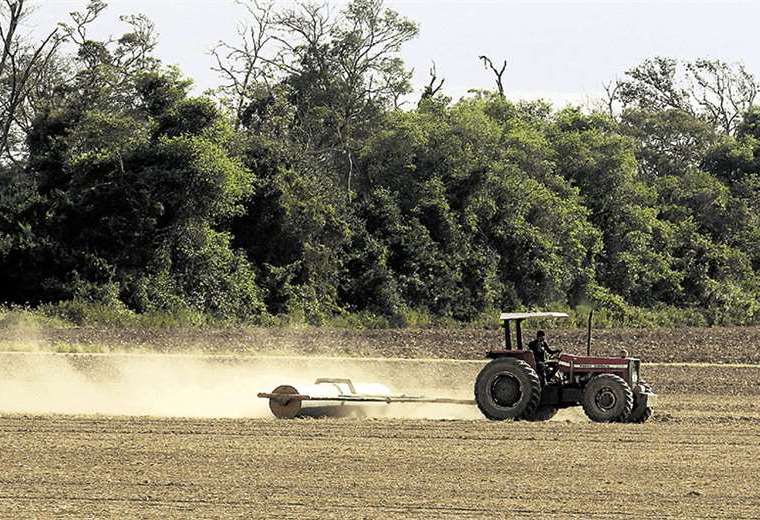November 10, 2022, 12:11 PM
November 10, 2022, 12:11 PM
Given the current complex situation and the fuel deficit recorded in recent weeks the department of Santa Cruz, The Agricultural Chamber of the East (CAO) faces actions that guarantee the supply of fuel for the productive sector of Santa Cruz. According to the president of the agricultural organization, Óscar Mario Justiniano Pinto, arrangements were made with the General Directorate of Controlled Substances so that theThe fuel transport roadmap for the productive sector is delivered in Santa Cruz, because due to problems of said distribution, this procedure was addressed to Montero or San Julián, issue that made it impossible for members of the Association of Oilseeds and Wheat Producers (Anapo) to carry out the process normally.
According to Justiniano, Santa Cruz is in full harvest season for winter crops and prepares for the preparation of soil and sowing of around two million hectares of crops that correspond to the ‘great’ sowing of summer crops 2022-2023.
In another order, it was reported that the second vice president of the CAO, Freddy García Gutiérrez, carried out similar negotiations with the executive president of the state oil company YPFB, Armin Dorgathen; and also with executives from the National Hydrocarbons Agency (ANH) and the Guillermo Elder Bell Refinery, with the sole purpose of delivering fuel to producers. According to García, there are currently many supply problems, mainly in the north, area that concentrates the highest production of soybeans in the winter harvest season.
Likewise, at the request of the Departmental Federation of Milk Producers (Fedeple), the CAO manages the supply of fuel for the transport units that carry out the collection and transfer of milk from the productive establishments to the industries that transform the raw material.
In contact with EL DEBER, the executive president of the state oil company, Armin Dorgathen, He indicated that in the matter of dispatching tanker trucks, areas that had the greatest need were prioritized. “We are prioritizing the productive issue. That they go to the province because we are talking about the issue of planting and harvesting. It was very necessary because we cannot lose a planting season that we have now, in November, because there if we are going to have a shortage problem that for 20 days of unemployment or more we lose a planting stage, that is going to generate a food problem for us , not during the days of unemployment, but in the future”, he pointed out.

















